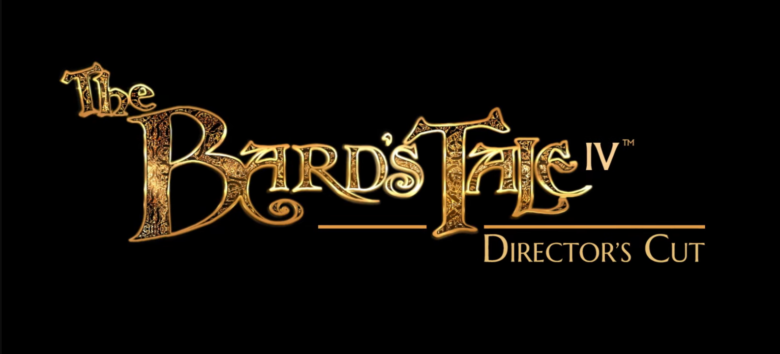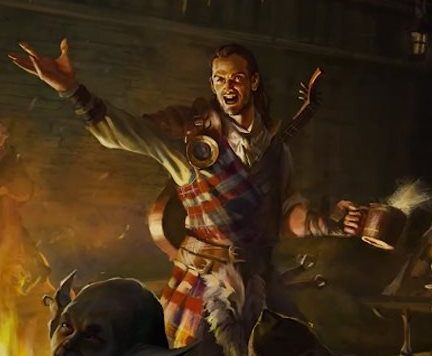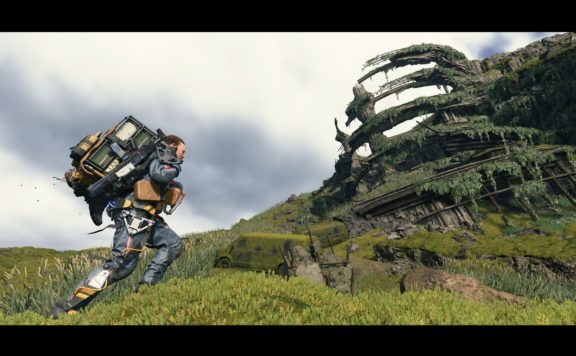Last year I reviewed The Bard’s Tale 4: Barrows Deep and found developer inXile had done a good job of blending in some gameplay mechanics found in recent dungeon crawlers while keeping the charm of the original grid-based games of the franchise. There were some technical issues plaguing the game, keeping it from being the best it could be. To top it all off players wanting an old school experience were put off by the modern design choices and at the same time, other players were claiming inXile didn’t go far enough in adding the current conveniences they have grown accustomed to. Over the last year, inXile has been addressing all of these concerns and last week released The Bard’s Tale 4: Director’s Cut. Were they able to cut through the technical issues of the original game and at the same time somehow magically satiate two diametrically opposed player bases? Pull up a chair and listen to the tale of my second adventure in the Bard’s Tale 4 world. This is our Bard’s Tale 4: Director’s Cut review.
Our Journey Begins, Again
We could spend a lot of time going through the core features and gameplay of The Bard’s Tale 4: Director’s Cut but, honestly, the basics haven’t really changed since my initial review. For anyone who hasn’t played the original release and is here trying to decide if it’s time to pick the game up, I would suggest checking out my original review to get you up to speed on what the game has to offer. Then head back here and check out the changes if you’re still on the fence.
For returning players, some of what we will cover here may seem very familiar to you. inXile has been adding in a lot of the fixes over the last year and depending on when you played the original they may or may not have already been implemented. At the very least you are getting a new end game dungeon, The Royal Necropolis of Haernhold, some new opponents to slay and subsequently new loot to plunder. There have also been a ton of tweaks, rebalancing, and bug squashing going on behind the scenes as well.
I am sure many people, myself included, wondered whether inXile had addressed the community concerns, and overall they succeeded in attacking all the major concerns. Let’s start with the big-hitting changes.
Controller Support
My preferred choice of control has always been a keyboard and mouse, but there are many people who like the compact nature of a controller. The BT4:DC has support for the Xbox One controller, and I must say that it’s quite intuitive. Sticking to normal convention, the left stick replaces the WASD keys for movement and the right stick controls the camera free-look. In grid-based movement you can even use the D-pad for authentic old-school 90-degree snap turns.
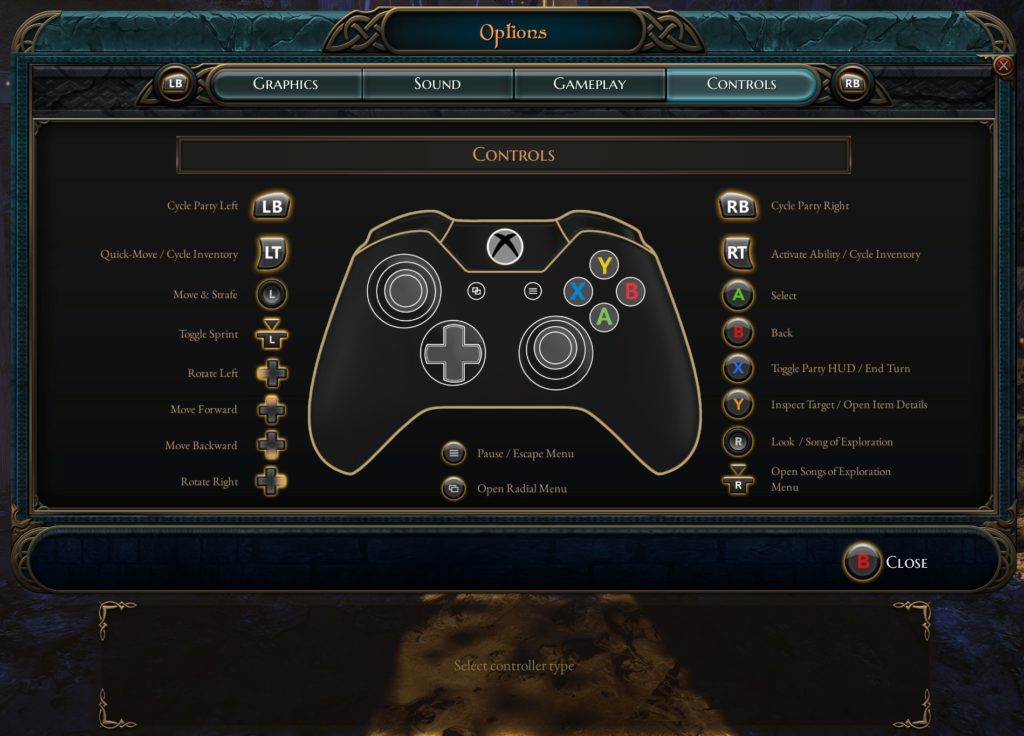
My biggest praise has to be in the use of a radial skill bar during combat. Selecting a skill or spell is as easy as pushing the left stick in whatever direction the skill is located on the circle and pushing the A button. This may seem a minor choice, but so many games keep a horizontal skill bar and I detest having to tap back and forth on the stick to select a skill. I always end up either too far or not far enough and then select the wrong skill on accident. This radial selector is also used on some of the UI menus as well. Again, it only saves a second or two but it just feels smoother than moving up and down to select a menu item.
Overall, the little things like the radial menu have turned me to the dark side of PC gaming and I found myself using the controller instead of mouse and keyboard to play through the game. If all games could implement the use of a controller as well as inXile did for the Bard’s Tale 4, I would be a happy camper.
Grid-Based Movement
The grid-based movement was one of the iconic elements of the genre thirty years ago, and the move to a more modern free movement system was one of the loudest complaints from the old-school regime. inXile didn’t go all the way back to the true grid-based system from the original series but they have found a compromise that should check another complaint off of everyone’s list.
With a true 3D environment and a free view camera, it isn’t always obvious which spot you are going to move to. inXile overcomes this by representing each grid space with a glowing glyph on the ground. These glyphs are blue, and whichever one you will move to is changed to green. It is a simple yet elegant solution. Devs showed they listen too. They heed the mistake of not giving options and have provided an option so that it can even be turned off if preferred.
The only missed opportunity I see with the grid-based movement is very minor. I would like to see an option to have the camera auto-center when you move. When using a controller this would make movement very fluid.
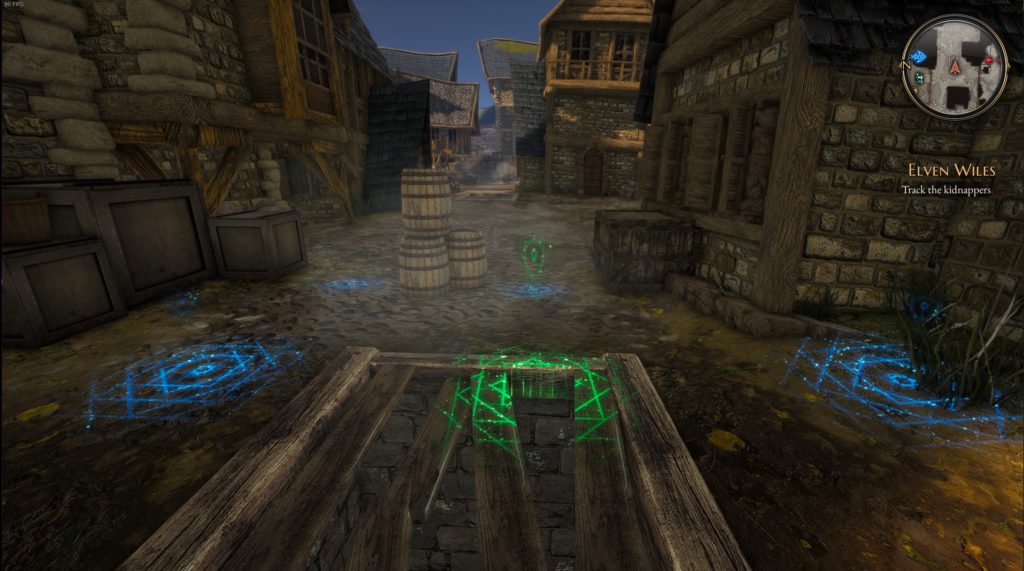
Technical Upgrades
I had accepted the design decisions to modernize certain aspects of the game as a necessary evil to make the game appeal to all but the most hardcore players searching for an authentic grid-based dungeon crawl. For me, the technical issues at release were what held The Bard’s Tale 4 from being better received. The game had plenty of bugs and not the variety that you had to go out and kill. No, I’m talking about the kind that can ruin your immersion.
I consider myself lucky since most of the problems I encountered were infrequent and not game-breaking. A perfect example is the annoying pause encountered in combat as I had to wait 10-20 seconds for an enemy frozen mid-attack to finally finish their move. Some players had it much worse and had to deal with frequent game freezes and crashes to desktop.
My biggest issues were centered around graphics. First and foremost was frame rate consistency. In my experience with Barrow’s Deep, I could only achieve frame rates in the high 20s with a Vega 64 graphics card at 2550×1440. That was the best case, with frame rates dipping into single digits at times. Switching to a lower resolution did help with maximum frame rates but the stuttering and freezing from the stalls still remained.
Another graphical issue was having black bars on the sides of my screen since even though 3440×1440 (my default monitor resolution) was listed in the options but wasn’t actually supported. I know, first world problems, but if you say a game can do something it should damn well do it.
I am happy to say that my time in The Bard’s Tale 4: Director’s Cut has been much improved on the technical side. I still haven’t encountered a single crash to desktop and the long pauses of combat have been virtually nonexistent. All around, everything feels more responsive and is most likely due to the squashing of bugs and optimization of code over the last several months.
That optimization is undeniable when it comes to frame rates. Not only does the 3440×1440 resolution work this time around, even at the higher resolution I am getting a good 15fps higher than I did a year ago at 2550X1440. I still see a dip in frame rates from time to time, but usually, it is when I swing the camera around quickly after just entering a new area and is nowhere near as big a swing as it was in the past.
The Little Bits
Sometimes the little things are all it takes to make a big difference, and the Bard’s Tale 4: Director’s Cut is no exception. There are a plethora of minor additions, tweaks, and changes that make the Director’s Cut a better game. As a one-off item these could easily be missed (and I did miss some until I read the patch list and went back to check them out). Let’s start with the new stuff:
- The Royal Necropolis of Haernhold – The one piece of content that extends the playtime, the Haernhold dungeon is a new end game challenge for veteran players. Unfortunately for the owners of the original game old saves are not available in the Director’s Cut. You will have to start a fresh game to experience all Haernhold has to offer. Fortunately, many of the other additions to the game will make your next playthrough much quicker.
- Mastercraft Gear – A grade above the Adamast and Mothren items, this new tier of weapons and armor won’t come cheap.
- Dwarven Weapons – Just like the Elven weapons we already have, Dwarven weapons are some of the most powerful weapons you can find. Unlike the Elven weapons, though, the dwarves haven’t hidden their power behind any puzzles and come ready to kill right out of the box.
- Inventory Filter – There is so much stuff to be found and collected in the Bard’s Tale 4, managing it all was a major chore. The new Filter button on the inventory screen will allow you to quickly find whatever item you need quickly.
- New Bosses – Along with the new dungeon comes 6 new bosses to fight. If you are capable of defeating them, expect one of the new dwarven weapons as a reward.
- Skippable Puzzles – A true staple of old-school dungeon crawls, the ability to solve the many puzzles in the Bard’s Tale 4 can be a barrier to your success. The new Song of Exploration, Struggler’s Lament, will allow you to move past any of the puzzles blocking you from completing the story quests, but you won’t have this option for any of the optional puzzles that hide some good loot. I would strongly suggest doing your best to solve the puzzles on your own your first run through or else you end up missing a lot of what this genre has to offer.
- Opening Cinematic – I get it when a three-person indie team uses still images in their opening story cinematic, but when I watched the original opening for The Bard’s Tale 4 I was a little annoyed they didn’t put in the effort to give a real opening for the game. They solved that by putting in a full cinematic opening for the Director’s Cut.
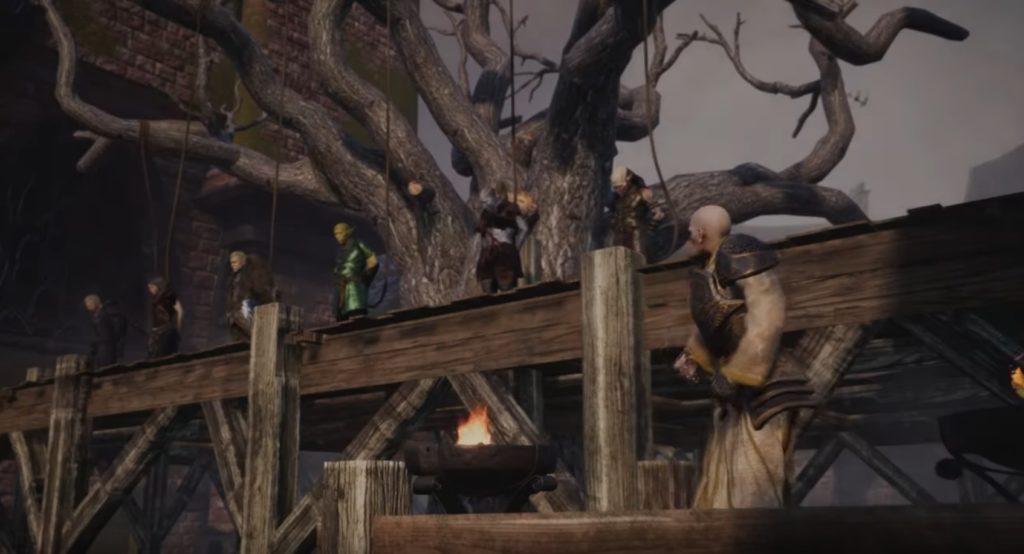
Now let’s highlight some of the back end changes.
- Inventory Filters – By adding a simple inventory filter button inXile has taken the huge time sink of trying to organize your plentiful inventory and removed it from the game. You can now filter to just the type of item you are looking for, making locating that set of robes you had been carrying around for hours much easier to find.
- Economy balance – By the end of my playthrough last year the economy was of no consequence. I had amassed so much gold I was able to buy anything I needed and quit collecting items unless they were an upgrade to what I was already using. The balance pass has adjusted the pricing, making this a little less pronounced but anyone taking the time to scour every inch of every map will still probably break the economy.
- Enemy Balance – Enemy encounters have been rebalanced to provide an easier early game and a much harder end game. You can still manually change basic difficulty options adjust the overall difficulty of the entire game at any time.
These are just the tip of the iceberg and represent just some of the bigger changes I noticed. A full list of changes and additions made for the Director’s Cut can be found here.
Final Thoughts
With the release of The Bard’s Tale 4: Director’s Cut, inXile has done a solid job of addressing much of the community’s concerns with the original game. They were able to give the players the options they wanted, allowing each person to tailor the game to whatever level of old-school vs. modern style they wish to play. All of the technical improvements and bug fixes have made the Director’s Cut a much cleaner and optimized game, and the horde of minor tweaks and additions have added a little more meat to an already good gameplay experience.
One thing I can’t quite wrap my mind around, and most will find it very nitpicky, is coining this version of the Director’s Cut. Generally speaking, a director’s cut takes an already completed product and adds in extra content that got cut and just didn’t make it into the original release. In this case, many of the changes and additions were added in previously through patches over the last year. It is all really semantics, and whether inXile decided to call this the Director’s Cut, Barrows Deep 2.0, or the ‘We Just Wanted To Fix The Things You Didn’t Like About Our Game’ version, they took an already good game and made it better.

